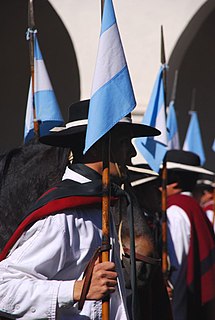The term Latino is a noun and adjective often used in English and Spanish to refer to people in the United States with cultural ties to Latin America, in particular to those countries which are Spanish- or Portuguese-speaking.

Spanish, or Castilian, is a Romance language that originated in the Iberian Peninsula and today has over 483 million native speakers, mainly in Spain and the Americas. It is a global language, the world's second-most spoken native language, after Mandarin Chinese, and the world's fourth-most spoken language, after Mandarin Chinese, English and Hindi.
The term Hispanic refers to persons, cultures, or countries related to the Spanish language, Spanish culture, Spanish people, or to Spain in general.

The United States has 41 million people aged five or older who speak Spanish at home, making Spanish the second most spoken language of the United States by far. Spanish is the most studied foreign language in the United States, with about six million students. With over 50 million native speakers, heritage language speakers and second language speakers, the United States now has the second largest Spanish-speaking population in the world after Mexico, although, like English, it is not an official language of the country. About half of all American Spanish speakers also assessed themselves as speaking English "very well" in the 2000 U.S. Census. This percentage increased to 57% in the 2013–2017 American Community Survey. The United States is among the Spanish-speaking countries that has its own Academy of the Spanish Language.

Hispanic America, also known as Spanish America is the portion of the Americas comprising the Spanish-speaking countries of the continents of North and South America.

Anglo-Americans are people who are English-speaking inhabitants of Anglo-America. It typically refers to the nations and ethnic groups in the Americas that speak English as a native language who comprise the majority of people who speak English as a first language. This usage originated in the discussion of the history of English-speaking people of the United States and the Spanish-speaking people residing in the western United States during the Mexican–American War.
Lusitanic is a term used to refer to persons who share the linguistic and cultural traditions of the Portuguese-speaking nations, territories, and populations, including Portugal, Brazil, Macau, Timor-Leste, Angola, Mozambique, Cape Verde, São Tomé and Príncipe, Guinea Bissau and others, as well as the Portuguese diaspora generally.
Hispanophone, Hispanosphere, and Hispanic are terms used to refer to speakers of the Spanish language and the Spanish-speaking world. The terms derive from the Latin political name of the Iberian Peninsula, Hispania. In addition to the general definition of Hispanophone, some groups in the Hispanic world make a distinction between Castilian-speaking and Spanish-speaking, with the former term denoting the speakers of the Spanish language—also known as Castilian—and the latter the speakers of the Spanish or Hispanic languages.
Hispanic and Latino Americans are Americans who are descendants of people from Spain or Latin America. More generally, this demographic includes all Americans who speak the Spanish language natively and identify as Hispanic. As of 2019, the Census Bureau estimated that there were almost 60 million Hispanics living the United States.

The Cervantes Institute is a worldwide non-profit organization created by the Spanish government in 1991. It is named after Miguel de Cervantes (1547–1616), the author of Don Quixote and perhaps the most important figure in the history of Spanish literature. The Cervantes Institute, a government agency, is the largest organization in the world responsible for promoting the study and the teaching of Spanish language and culture.

The culture of South America draws on diverse cultural traditions from the continent of South America. These include the native cultures of the peoples that inhabited the continents prior to the arrival of the Europeans; European cultures, brought mainly by the Spanish, the Portuguese and the French; African cultures, whose presence derives from a long history of New World slavery; and the United States, particularly via mass culture such as cinema and TV.
Pocho is a term used by Mexicans to describe Chicanos and those who have left Mexico. Stereotypically, pochos speak English and lack fluency in Spanish. Among some Mexican Americans, the term has been embraced to express pride in having both a Mexican and an American heritage asserting their place in the diverse American culture.
In the United States, a White Hispanic is an individual who self-identifies as white and of Hispanic descent and/or speaks the Spanish language natively.
Anti-Spanish sentiment or Hispanophobia is a fear, distrust of, aversion to, hatred of, or discrimination against Hispanic people in general or more specifically against Latino people, Hispanic culture and the Spanish language. Its opposite is Hispanophilia. This historical phenomenon has had three main stages, originating in 16th-century Europe, reawakening during 19th-century disputes over Spanish and Mexican territory such as the Spanish–American and Mexican–American Wars, and finally in tandem with politically charged controversies such as bilingual education and illegal immigration to the United States. Within the complex of identity politics in Spain, Catalan, Basque, and Galician nationalism has also been identified with hispanophobic views and discourse.
Hispanicisation or hispanisation, also known as castilianization or castilianisation refers to the process by which a place or person becomes influenced by Hispanic culture or a process of cultural and/or linguistic change in which something non-Hispanic becomes Hispanic. Hispanicization is illustrated by spoken Spanish, production and consumption of Hispanic food, Spanish language music, and participation in Hispanic festivals and holidays. In the former Spanish colonies, the term is also used in the narrow linguistic sense of the Spanish language replacing indigenous languages.
Hispanos are people of Spanish descent of the 16th century-to-19th century in New Spain, in what is today the Southwestern United States, who retained a predominantly Spanish culture as it relates to their cultural region, having lived in that region since it was territorially incorporated into the United States. Their population in the American Southwest is around 1.8 million and the largest of these groups, numbering around 750,000, are the Hispanos of New Mexico, originating in Spanish and Mexican Santa Fe de Nuevo México, they have left a large impact on New Mexico’s culture, cuisine, and music. Many of the New Mexican Hispanos are mestizos, of mixed Hispanic ancestry, with Pueblo, Apache, Navajo, Comanche, and Native Mexican heritage. Other Hispanos groups from the United States include Californios and Tejanos, other similar Hispanic and Latino Americans are Chicanos, Spanish Floridians, Isleños, and Puertorriqueños or Boricuas.

The United States Census Bureau estimates that the population of Louisiana was 4,670,724 on July 1, 2015, a 3.03% increase since the 2010 United States Census.

Panhispanism is a political trend aimed to achieve social, economic, and political cooperation of the Spanish-speaking countries, principally those of Hispanic America, due to the distance between Spain, Western Sahara and Equatorial Guinea. It focuses principally on the former Spanish Empire's territories in North, Central and South America. It has been present consistently in literature, revolutionary movements, and political institutions. The term may be also used to talk specifically about projects of Hispanic American unity held by Simón Bolívar and José de San Martín.
The ethnonyms Hispanic and Latino are used to refer collectively to the inhabitants of the United States who are of Latin American or Spanish origin—that is, Latino or Hispanic Americans. The usage of both terms has changed to adapt to a wide range of geographical and historical influences. The term "Hispanic" was used first; later, some Hispanics in the western United States came to prefer the term "Latino". The Census does not classify persons of Portuguese or Brazilian descent as Hispanic, as those are Portuguese-speaking populations. According to a 2011 study by the Pew Research Center, the majority (51%) of Hispanic and Latino Americans prefer to identify with their families' country of origin, while only 24% prefer the terms "Hispanic" or "Latino".

Bolivians are people identified with the country of Bolivia. This connection may be residential, legal, historical or cultural. For most Bolivians, several of these connections exist and are collectively the source of their being Bolivian.








